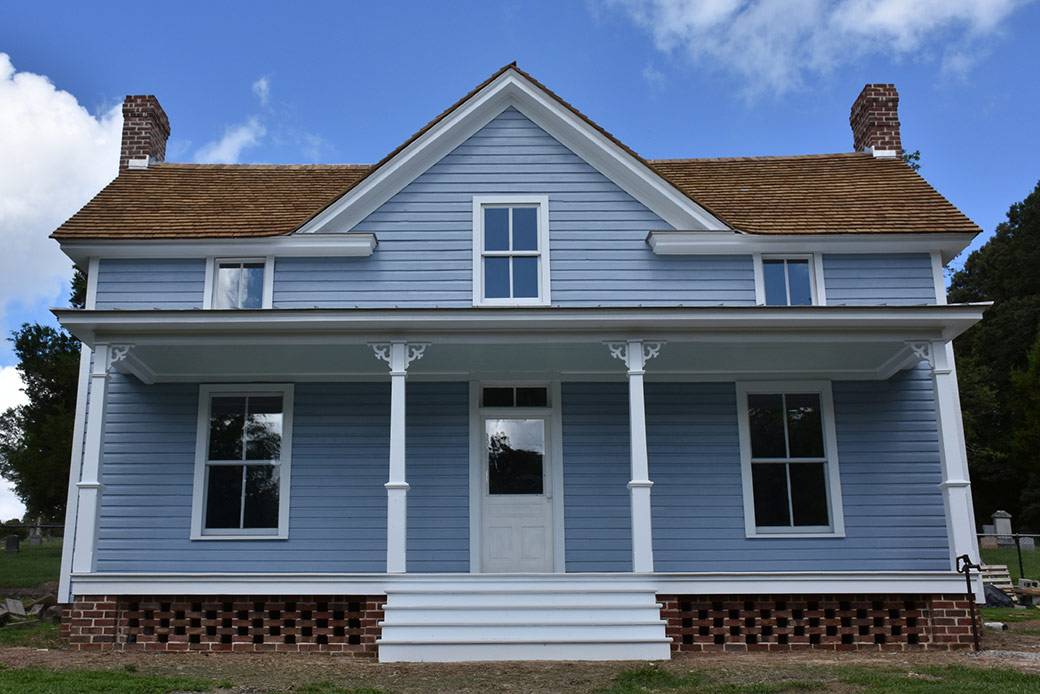Pauli Murray House to Celebrate Designation as National Landmark, April 1

A Saturday, April 1, celebration will mark the designation of noted activist/scholar/religious leader Pauli Murray’s family home as a National Historic Landmark.
The free, public event begins at 1 p.m. Durham Mayor Bill Bell, Wendy Jacobs, chairwoman of the Durham County Board of Commissioners, and Annette Taylor, director of community engagement with U.S. Rep. G.K. Butterfield’s office are among the slated speakers.
The West End neighborhood home at 906 Carroll Street has been recognized for its association with the African American civil rights activist, lawyer, educator, priest, writer and feminist.
“Durham can embrace Pauli Murray as a symbol of our community’s values and struggle for equality, dignity and justice,” says Barbara Lau, director of the Pauli Murray Project, Duke Human Rights Center @ Franklin Humanities Institute. “The National Historic Landmark designation sparks support for our work to connect histories of women, African Americans and LGBTQ folk that are often invisible with activism focused on today’s issues of justice and equity. We want to positively impact the community and nurture the next generation of Pauli Murrays.”
The home’s builder, Murray’s grandfather Robert Fitzgerald, was a mixed-race man and Civil War veteran.
“To his family, it [the house he built at 906 Carroll Street in the 1890s] was more than a home; it was a monument to Grandfather’s courage and tenacity,” Murray wrote in her 1956 memoir, Proud Shoes: The Story of An American Family. Robbed of his sight by injuries from the war, Fitzgerald supervised the laying of each board, brick and shingle by touch. “It was as if he had built himself into the structure, for it had his stubborn character.”
The designation of her house as a landmark was part of a remarkable period of recognition for Murray. Her work was little discussed after her death in 1985, but Murray is now recognized as a pioneer for her activism, scholarship and writing. Last year Yale University, where she was the first African American to receive a Doctor of Juridical Science degree from the law school, named a residence hall after her.
In addition, the recent publication of the best-selling “The Firebrand and the First Lady” by Patricia Bell-Scott celebrated Murray’s friendship with Eleanor Roosevelt and their effects on American politics and policy.